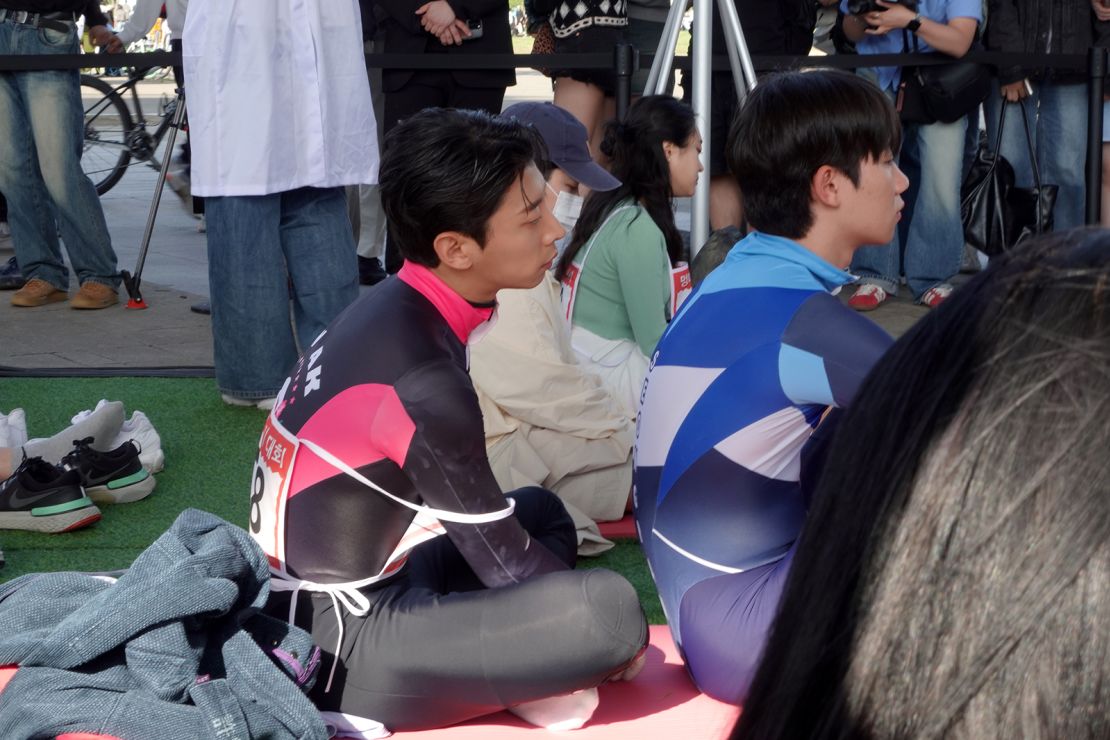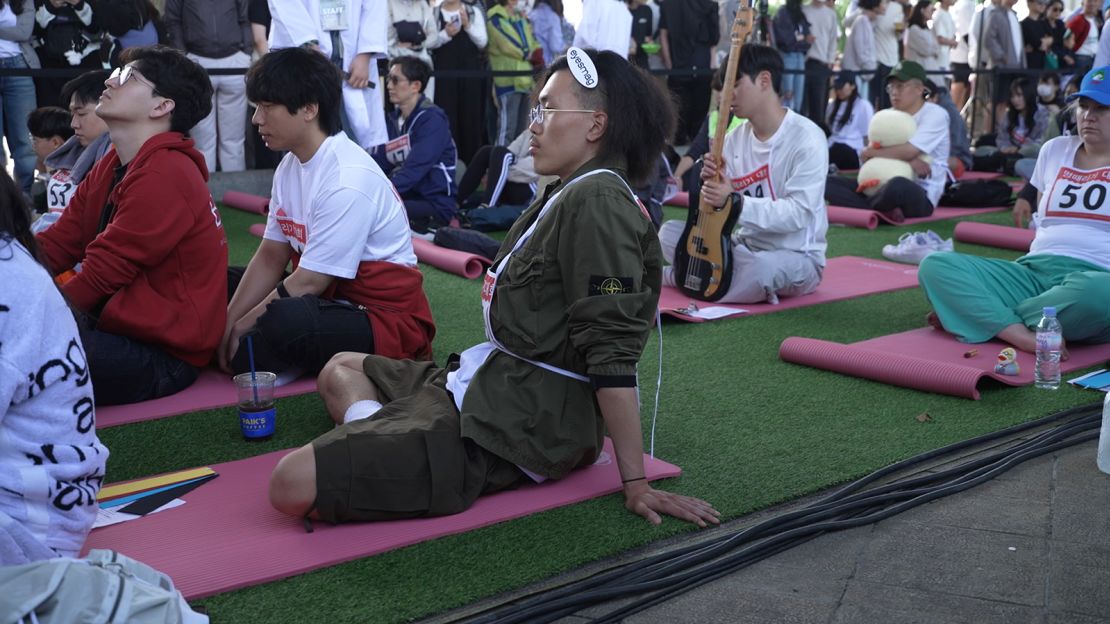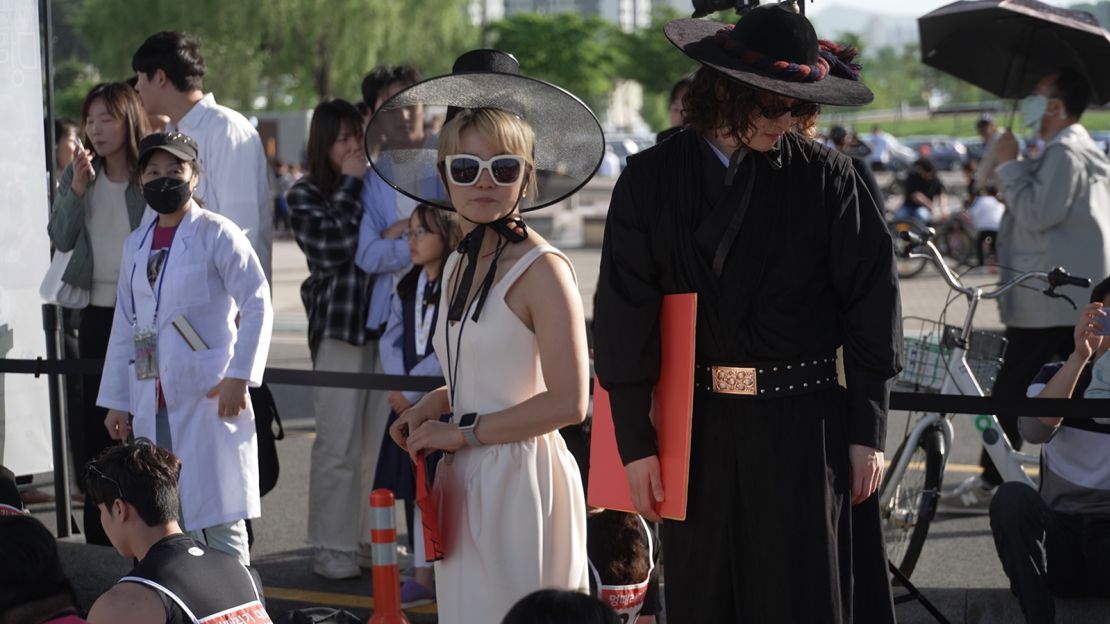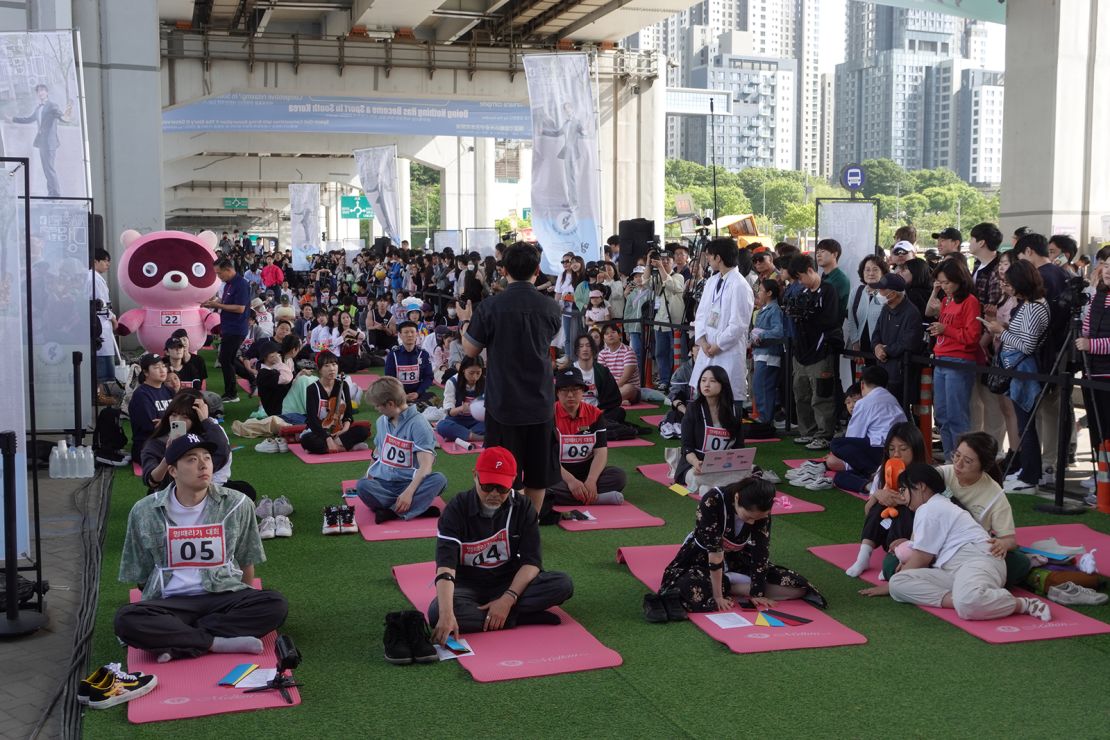More than 100 people gathered silently on yoga mats over the weekend to do absolutely nothing, in a Seoul event that is part physical challenge, part art piece, and part respite from South Korea’s hyper-competitive society.
The annual Space-out competition, held on Sunday, finds who’s best at zoning out for 90 minutes without falling asleep, checking their phone or talking.
Participants’ heart rates are monitored, while onlookers vote for their 10 favorite contestants. Whoever has the most stable heart rate among the 10 takes home the trophy.
Among those taking part was speed skater Kwak Yoon-gy, a double Olympic silver medalist.

“I tried out for the Olympics five times and have never taken a proper rest while training for 30 years,” said the 34-year-old short-track specialist, who took third place.
“I heard this place is where I can clear my mind and rest at least during this time, so I came here thinking, ‘Wow, this is what I needed so much.’”
More than 4,000 people applied to participate in the competition, hosted by the city government. The 117 contestants selected ranged from a child in second grade to people in their 60s.
For many participants, it was a way to recover from burnout and stress, often from their work, in a country with high academic stress and extreme pressure to succeed.
“I usually had a lot of worries and stress, so I applied [to participate] because I thought it would be nice to blow away such stress and worries by spacing out in the competition,” said 26-year-old YouTuber Kim Seok-hwan.

This year marks the tenth anniversary of the Space-out competition, founded by a visual artist, who goes by the pseudonym Woopsyang, after she suffered severe burnout.
“I wondered why I was so anxious about doing nothing,” she recalled, adding that that’s when she realized her anxiety came from comparing herself to other people leading busy lives.
“In fact, those people could also be wanting to space out and do nothing like me,” Woopsyang said. “So, I created a competition thinking that it would be nice to pause all together at the same place at the same time.”

Competitive idling “overturns the social convention that spacing out is a waste of time in today’s busy society and turns it into a valuable activity,” she said.
“This contest tells you that spacing out is no longer a waste of time but a time that you really need.”
The competition is also performance art, she said.
“Although the contestants are staying still inside the competition venue, the audience is constantly moving around,” Woopsyang said, adding her goal was to “create a visual contrast between a group that does nothing and a group that is busy.”

Since the first Space-out competition was held in Seoul in 2014, it has expanded internationally, with contests taking place in various cities such as Beijing, Rotterdam, Taipei, Hong Kong and Tokyo.
This year’s competition in Seoul was won by freelance announcer Kwon So-a, who works multiple jobs, and took home a trophy shaped like the Auguste Rodin sculpture “The Thinker.”

“Especially here in Korea, it’s such a competitive country, where people think that if they do nothing that they are a little behind,” Kwon, 35, said. “I think everyone has to have their own pace and sometimes just slow down.”
Doing nothing is “good for your mental health as well as your physical health because your body has to relax, but your body can only relax when your brain relaxes,” she added.
“For both of these reasons, people should space out.”
Kim Hwa-jin and CNN’s Charlie Miller contributed to this report.



